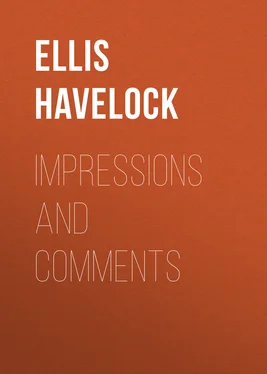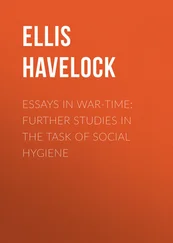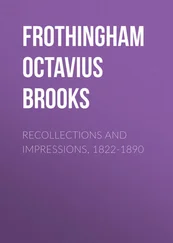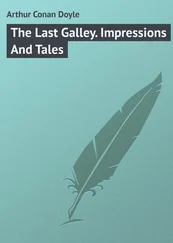Havelock Ellis - Impressions and Comments
Здесь есть возможность читать онлайн «Havelock Ellis - Impressions and Comments» — ознакомительный отрывок электронной книги совершенно бесплатно, а после прочтения отрывка купить полную версию. В некоторых случаях можно слушать аудио, скачать через торрент в формате fb2 и присутствует краткое содержание. Жанр: foreign_prose, foreign_antique, на английском языке. Описание произведения, (предисловие) а так же отзывы посетителей доступны на портале библиотеки ЛибКат.
- Название:Impressions and Comments
- Автор:
- Жанр:
- Год:неизвестен
- ISBN:нет данных
- Рейтинг книги:4 / 5. Голосов: 1
-
Избранное:Добавить в избранное
- Отзывы:
-
Ваша оценка:
- 80
- 1
- 2
- 3
- 4
- 5
Impressions and Comments: краткое содержание, описание и аннотация
Предлагаем к чтению аннотацию, описание, краткое содержание или предисловие (зависит от того, что написал сам автор книги «Impressions and Comments»). Если вы не нашли необходимую информацию о книге — напишите в комментариях, мы постараемся отыскать её.
Impressions and Comments — читать онлайн ознакомительный отрывок
Ниже представлен текст книги, разбитый по страницам. Система сохранения места последней прочитанной страницы, позволяет с удобством читать онлайн бесплатно книгу «Impressions and Comments», без необходимости каждый раз заново искать на чём Вы остановились. Поставьте закладку, и сможете в любой момент перейти на страницу, на которой закончили чтение.
Интервал:
Закладка:
You might say that a fountain that leaps largely and exquisitely up towards the sky only needs freedom and space. But no, it also needs compression and force, a mighty restrained energy at its roots, of which it is the gay and capricious flower. That, you may say, is not really a vital thing. But take a real flower, the same mechanism is still at work. The flexible convolvulus that must cling to any support from which to expand its delicate bells needs not only freedom to expand but much more the marvellous energy that was wound up and confined, like a spring, in the seed. It will find its own freedom, but it will not find its own force.
Therefore let us hold the moral balance fair and firm. The utmost freedom, the utmost restraint, we need them both. They are two aspects of the same thing. We cannot have freedom in any triumphant degree unless we have restraint. The main point is, that we should not fossilise either our freedoms or our restraints. Every individual needs—harmoniously with the needs of other individuals—the freedoms and restraints his own nature demands. Every age needs new freedoms and new restraints. In the making of New Freedoms and New Restraints lies the rhythm of Life.
November 11.—The psychology of the crowd is interesting, even when it is an educated and well-fed crowd. I take up the newspaper and see the announcement of a "momentous" declaration by the Premier at a Lord Mayor's banquet at the Guildhall. I have the curiosity to read, and I find it to be that the "victors are not to be robbed of the fruits which have cost them so dear." This declaration was followed by "loud and prolonged cheers," as evidently the speaker, being a sagacious lawyer, knew it would be when he chose to put his declaration into this cynical shape, as an appeal to mob feeling, rather than in the form of a statement concerning the rights of the case, whatever the rights may be. Yet not one of those rapturous applauders would for a moment have tolerated that doctrine if it had been proposed to apply it to his own possessions. As a mob they applaud what as individuals they would disclaim with such moral energy as they might be capable of. The spectacle of the big robber is always impressive, and the most respectable of mobs is carried away by it. "Who was ever a pirate for millions?" as Raleigh protested to Bacon.
If we imagine the "victors" in this case to have been on a rather smaller scale the enthusiasm of the Guildhall mob would have been considerably damped. Let us imagine they were a band of burglars who had broken in the night before and carried off the materials for the forthcoming banquet, leaving one of the band behind dead and two wounded. When the guests seated at the bare board heard the emphatic declaration that the victors are not to be robbed of "the fruits which have cost them so dear," would they have raised quite such "loud and prolonged cheers"?
November 12.—The Divine Ironist who surely rules the world seldom leaves Himself without witness. On Lord Mayor's Day this witness appeared in the form of an ignorant ruffian. Within a few yards of the Mansion House, within a few hours of that "momentous declaration" which followed the turtle soup, in Liverpool Street—a street crowded not with ruffians but with business people and bankers' clerks, all the people who carry on the daily routine of civilisation—a man of the people smashed a jeweller's window and flung the jewelry into the street, shouting "Help yourselves." And they helped themselves. In a brief terrific scramble several hundred pounds' worth of jewelry was seized. Two men only of this respectable crowd brought what they had secured into the shop; the rest decamped with the booty. They had scarcely had time to read the "momentous declaration." But they agreed with it. They were not to be "robbed of the fruits which had cost them so dear."
Clearly, again, the Premier had rightly gauged the moral capacities of the mob. We sometimes think that the fundamental instincts of the crowd are, after all, sound; leave them to themselves and they will do the right thing. But, on the other hand, those who despise and contemn the mob will always have a sadly large amount of evidence to support their case, even in the most "respectable" centres of civilisation.
November 20.—The Archbishop of Canterbury, I understand, has publicly expressed his approval of the application of the lash to those persons who are engaged in the so-called "White Slave Traffic." There is always a certain sociological interest in the public utterances of an Archbishop of Canterbury. He is a great State official who automatically registers the level of the public opinion of the respectable classes. The futility for deterrence or reform of the lash or other physical torture as applied to adults has long been a commonplace of historical criminology, and Collas, the standard historian of flagellation, pointing out that the lash can at best only breed the virtues of slavery, declares that "the history of flagellation is that of a moral bankruptcy." Moreover, criminals who are engaged in low-grade commercial affairs, with the large lure that makes them worth while, can usually arrange that the lash should fall on a subordinate's shoulders. It has been ascertained that the "capitalised value" of the average prostitute is nearly four times as great as that of the average respectable working-girl; how many lashes will alter that? But the sadistic impulse, in all its various degrees, is independent of facts. Of late it appears to have been rising. Now it has reached that percentage of the respectable population which automatically puts the archiepiscopal apparatus in motion. For an Archbishop of Canterbury has a public function to perform (has not Sydney Smith described a "foolometer"?) altogether independent of such reasonable and human functions as he may privately perform.
Is this love of torture, by the way, possibly one of the fruits of Empire? We see it in the Roman Empire, too, and how vigorously it was applied to Christians and other criminals. Christianos ad leones! But it was a disastrously unsuccessful policy—or we should not have an Archbishop of Canterbury with us now.
No disrespect for Archbishops of Canterbury is involved in this recognition of their public function, and I have no wish to be (as Laud wrote of one of my ancestors) "a very troublesome man" to archbishops. They act automatically for the measurement of society, merely in the same sense as an individual is automatically acting for the measurement of himself when he states how profoundly he admires Mendelssohn or R. L. Stevenson. He thereby registers the particular degree of his own spiritual state. And when an Archbishop of Canterbury, with all that sensitiveness to the atmosphere which his supreme office involves, publicly Professes an Opinion, he is necessarily registering a particular degree in the Spiritual State of Society. It is an important function which was never vouchsafed to his Master.
One wonders how many centuries it is since an Archbishop of Canterbury was known to express any public opinion on non-ecclesiastical affairs which was not that of the great majority of Respectable People. Of course in ecclesiastical matters, and in political matters which are ecclesiastical, he is professionally bound, and Beckett and Sudbury and Laud—though one was a victim to the hostility of a King, another to the hostility of the lower class, and the third to the middle class—were all faithful to the death to their profession and their class, as an Archbishop is bound to be even when his profession and his class are in a minority; I speak of the things to which he is not so bound. I have no doubt that at some recent period an Archbishop has archiepiscopally blessed the Temperance Movement. He is opposed to drunkenness, because we all are, even Licensed Victuallers, and because drunkenness is fast dying out. But imagine an Archbishop of Canterbury preaching Temperance in the eighteenth century when nearly every one was liable to be drunk! He would have been mistaken for a Methodist. I must confess it would be to me a great satisfaction to find an Archbishop of Canterbury earnestly pleading in the House of Lords in favour of gambling, or the unrestricted opening of public-houses on Sunday, or some relaxation in the prosecution of pornographic literature. Not by any means that I should agree with his point of view. But the spectacle offered of a morally courageous and intellectually independent Archbishop of Canterbury would be so stimulating, the presence of a Live Person at the head of the Church instead of a glorified Penny-in-the-Slot Machine would be so far-reaching in its results, that all questions of agreement and disagreement would sink into insignificance.
Читать дальшеИнтервал:
Закладка:
Похожие книги на «Impressions and Comments»
Представляем Вашему вниманию похожие книги на «Impressions and Comments» списком для выбора. Мы отобрали схожую по названию и смыслу литературу в надежде предоставить читателям больше вариантов отыскать новые, интересные, ещё непрочитанные произведения.
Обсуждение, отзывы о книге «Impressions and Comments» и просто собственные мнения читателей. Оставьте ваши комментарии, напишите, что Вы думаете о произведении, его смысле или главных героях. Укажите что конкретно понравилось, а что нет, и почему Вы так считаете.












